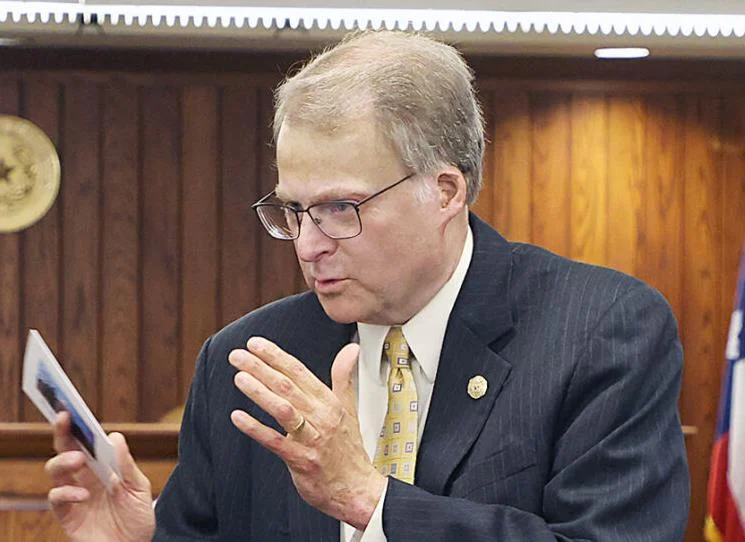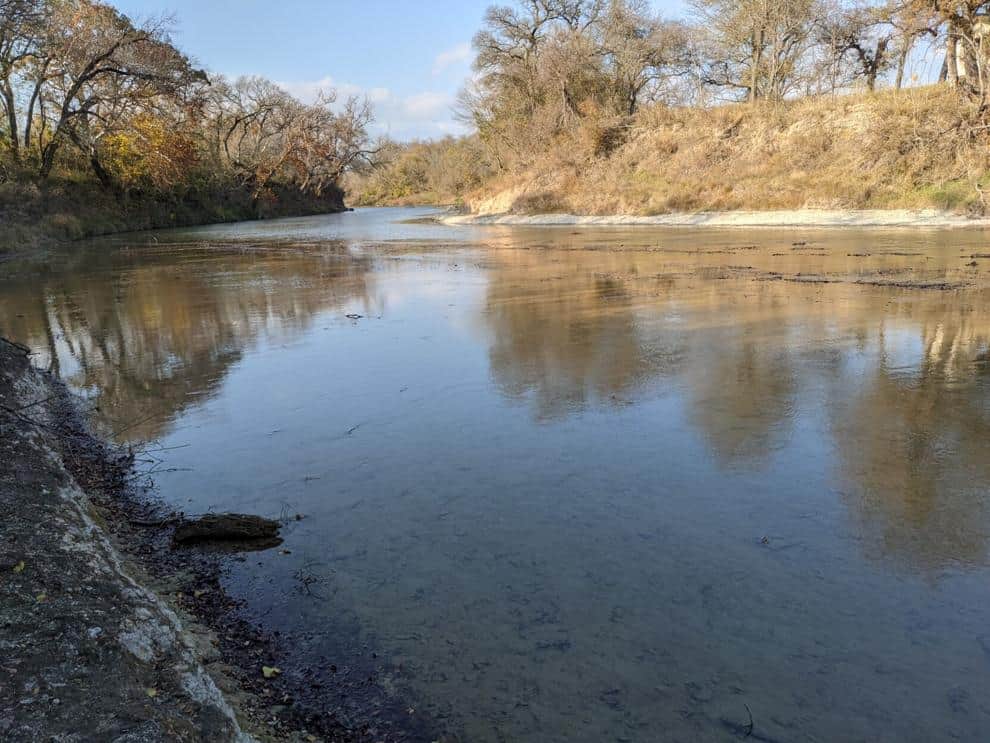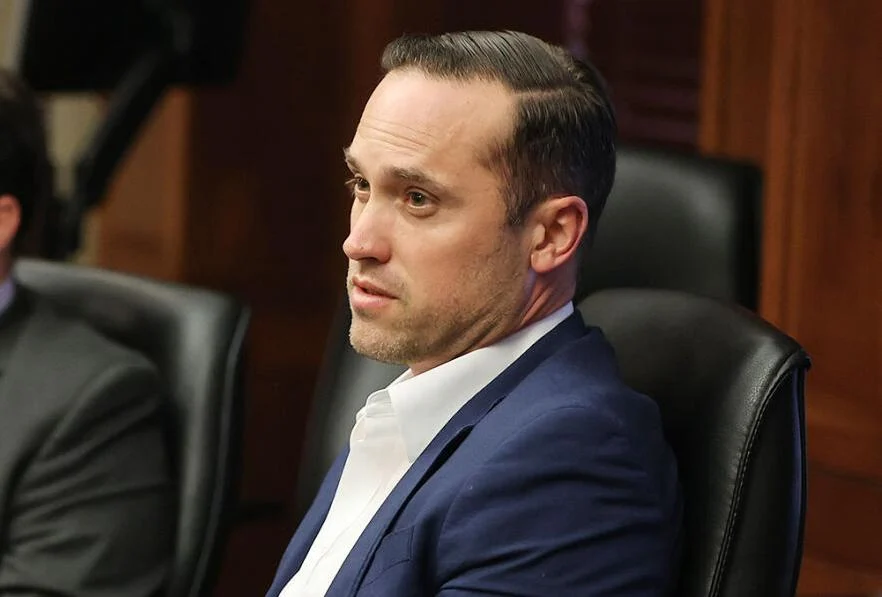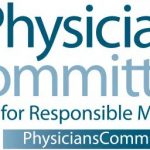
Meek said the city remains on the lookout for last-minute attempts to resurrect the legislation through amendments in the final days of the 88th Texas Legislature. He also said he is willing to meet with the bill’s supporters to find common ground on streamlining dairy regulations.
House Bill 2827 remained unscheduled before the Senate Committee on Natural Resources and Economic Development late Wednesday, the last day for bills to be heard on the Senate floor.
The committee is headed by Sen. Brian Birdwell, R-Granbury, who represents both Waco and the dairy country around Erath and Hamilton counties.

Rod Aydelotte, Tribune-Herald file photoJ.B. Smith, Tribune-Herald
Many of those dairies lie in the watershed of the North Bosque River, which feeds Lake Waco. The river and watershed are federally designated as “impaired” due to excessive phosphorus and algae and have been under a state-imposed cleanup plan for the past two decades.
That plan requires dairies to obtain individual permits that allow regulators to tailor manure disposal rules to each dairy site and to notify neighboring landowners of any changes. Individual permitting also allows a public input process that can include a trial-like contested case hearing on permits, a process that dairy industry officials say adds delays, costs and uncertainty to the process.
House Bill 2827, authored by Rep. DeWayne Burns, R-Cleburne, would have ended individual permitting in the watershed in favor of standardized general permits. It also would have removed soil testing requirements for third-party fields where phosphorus-rich manure from dairy farms is spread. City officials have said the measure would open up a loophole for unregulated manure disposal.
The bill was championed by agriculture groups including the Texas Association of Dairymen and Texas Farm Bureau.

J.B. Smith, Tribune-Herald
In an interview Wednesday, Meek said he is willing to meet with bill supporters to “work through amicable solutions” to concerns about overregulation in the watershed.
“I really appreciate the Farm Bureau, and being the son of a cattle rancher, I want to make sure the industry is able to not have undue regulation,” Meek said. “But it can’t be at the expense of Waco’s water supply. These regulations are more than 10 years old, and I do believe there are some changes we can make in partnership that will not impair our water supply.”
In a statement Wednesday afternoon, Burns acknowledged Meek’s offer.
“While I am disappointed HB 2827 did not make it out of the Senate committee, I am encouraged by the City of Waco’s commitment to discuss this issue further during the interim,” he said in an email to the Tribune-Herald.
Gary Joiner, spokesperson for the Waco-based Texas Farm Bureau, said the organization is willing to be part of those talks.
“Texas Farm Bureau supports all parties meeting in the interim to work out a compromise agreeable to all concerned, and we will work to facilitate that meeting and discussion,” Joiner said in an email to the Tribune-Herald. “Mayor Meek has indicated he is amenable, and we look forward to the dialogue.”
A recent slideshow explainer produced by the city of Waco on House Bill 2827 suggests streamlining could include fast-tracking waste-to-energy projects and minor changes to waste disposal fields and structures.
Meek said Birdwell has been responsive to Waco’s concerns.
“I do want to say how much I appreciate Senator Birdwell’s attention to this matter and his thoughtful approach,” he said. “I look forward to working with him after the session is over to figure out how to amend these regulations. He has been a great advocate to ensure that this doesn’t move too quickly in a way that has unintended consequences.”
He also thanked Rep. Charles “Doc” Anderson, R-Waco, for attempting to derail the legislation in the House by raising points of order. The bill ultimately passed the Texas House 80-53 on its final reading May 5, with supporters including Rep. Angelia Orr, R-Hill County, whose district reaches into Waco.
Meek said he was “startled and frustrated” by Orr’s “refusal to stand with this community and vote against it.”
“That was bad representation on her behalf,” he said.
Orr has not responded to the Tribune-Herald’s request for comment on the legislation.
Darren Turley, executive director of the Texas Association of Dairymen, said in an email late Wednesday that he would “love to visit with the mayor or Senator Birdwell to discuss this issue during the interim.”
Turley said the dairy industry in the North Bosque River watershed is continuing to feel the financial burden of higher permit costs, even as river quality has improved over the last two decades.
“The watershed has shown great improvement, and I believe it is a shame that is not the story that everyone is interested,” Turley stated.
“The bill was likely filed in good faith to try to bring solutions to bear for the dairy industry,” Mayor Dillon Meek said in an interview in late April. “The unintended consequence of that would be, I think, losing the opportunity for the public to comment, and thus increase the risk of greater pollution in the North Bosque River,” the waterway that feeds Lake Waco and supplies the city’s drinking water.

























